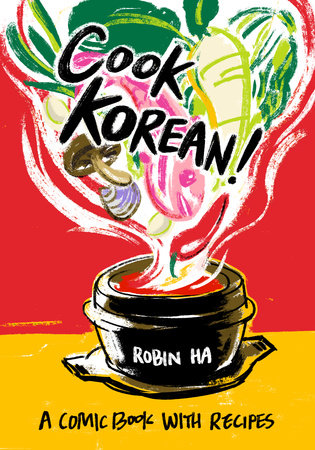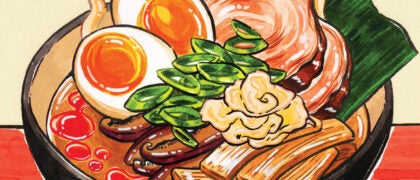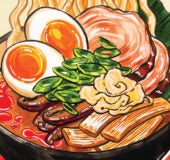Prologue 6
Introduction 10
7 Key Ingredients in Korean Cooking 11
What is in the Korean Refrigerator? 12
The Korean Pantry: Dried Goods, Spirits & Kitchenware 14
Korean Meal Guide 16
Bap: Cooked Rice 17
Rice & Its Delicious By-Products 18
Korea’s Regions & Foods 20
Dengki’s Dress 21
Chapter 1: Kimchi and Pickles 22
Intro to Kimchi 23
Easy Kimchi (Mak Kimchi) 26
Radish Cube Kimchi (Kkakdugi) 28
Cool & Spicy Cucumber (Oisobagi) 30
Green Onion Kimchi (Pa Kimchi) 32
Chayote Pickle (Chayote Jangachi) 34
Square-Cut Kimchi Gazpacho (Nabak Kimchi) 36
Chapter 2: Vegetable Side Dishes 38
Intro to Dosirak 39
Bean Sprout Salad (Kongnamul Muchim) 40
Soy Spinach (Sigeumchi Namul) 42
Steamed Asian Eggplant (Gaji Namul) 44
Pan-Fried Tofu (Dubu Buchim) 46
Spicy Bok Choy (Cheonggyeongchae Muchim) 48
Mixed Veggies & Rice in a Stone Bowl (Dolsot Bibimbap) 50
Acorn Jelly Salad (Dotorimuk) 53
Chapter 3: Meat and Poultry 54
Intro to Korean Barbecue 55
Just Grill It! 57
Green Onion Salad (Pajeori) 57
Grilled Beef Short Ribs (Galbi) 58
Soy Garlic Beef over Rice (Bulgogi Dupbap) 60
Braised Beef in Soy Sauce with Eggs (Jangjorim) 62
Spicy Pork over Rice (Jeyuk Dupbap) 64
Boiled Pork Belly Wrap (Bossam) 66
Chile Chicken Stew (Dakbokkeumtang) 68
Ginseng Chicken Soup (Samgyetang) 70
Chapter 4: Seafood 72
Intro to Korean Seafood 73
Spicy Octopus over Rice (Nakji Dupbap) 74
Tangy Seaweed Salad (Miyeok Naengchae) 76
Braised Daikon With Saury (Mu Kkongchi Jorim) 78
Shishito Peppers With Dried Anchovies & Fish Cakes (Kkwarigochujjim) 80
Raw Fish Salad Bowl (Hoedupbap) 82
Pan-Fried Yellow Croaker (Jogi Gui) 84
The Legend of Gulbi 85
Chapter 5: Soups and Stews 86
Fire & Ice: Intro to Extreme Temperatures in Korean Dining 87
Soft Tofu Soup (Sundubu Jjigae) 88
Kimchi Stew (Kimchi Jjigae) 90
Soybean Paste Soup with Clams (Jogye Doenjangguk) 92
Seaweed Soup with Beef
(Sogogi Miyeokguk) 94
Soybean Sprout Soup (Kongnamulguk) 96
Beef & Daikon Soup (Sogogimuguk) 98
Spicy Fish Stew (Maeuntang) 100
Spicy Beef Soup (Yukgaejang) 102
Chapter 6: Porridges 104
Intro to Juk 105
Pine Nut Porridge (Jatjuk) 106
Black Sesame Porridge (Heukimjajuk) 107
Sweet Red Bean Porridge (Danpatjuk) 108
Sweet Pumpkin Porridge (Hobakjuk) 110
Seafood Mushroom Porridge
(Haemul Beoseot Juk) 112
Chapter 7: Noodles and Rice Cakes 114
Intro to Noodles 115
Spicy Cold Noodles (Bibim Guksu) 118
Rice Cake Soup (Tteokguk) 120
Hand-Pulled Dough Soup with Potatoes (Gamja Sujebi) 122
Knife Noodle Soup with Clams (Bajirak Kalguksu) 124
Sweet Potato Noodles (Japchae) 126
Cold Buckwheat Noodles (Mulnaengmyun) 128
Chapter 8: Snacks and Street Food 130
Intro to Bunsik 131
Spicy Rice Cakes (Tteokbokki) 132
Brown Sugar Pancakes (Hotteok) 134
Brown Sugar Sticky Rice (Yaksik) 136
Kimchi Fried Rice (Kimchi Bokkumbap) 138
Pickled Radish (Tongdakmu) 139
Egg in a Bowl (Gyeranjjim) 140
Seaweed Rice Roll (Gimbap) 142
Bbopkki 145
Chapter 9: Cocktails and Anju 146
Intro to Korean Drinking Culture 147
Watermelon Soju (Subak Soju) 148
Persimmon –Red Date Punch
(Sujeonggwa) 150
Yogurt Soju (Yakult Soju) 152
Intro to Anju 153
Army Stew (Budaejjigae) 154
Seafood & Green Onion Pancake
(Haemul Pajeon) 156
Kimchi Pancake (Kimchi Buchimgae) 158
Chapter 10: Korean Fusion 160
Intro to Foreign Food In Korea 161
Omelet Fried Rice (Omurice) 162
Sweet & Sour Pork (Tangsuyuk) 164
Black Soybean Noodles (Jjajangmyeon) 166
Spicy Chicken Tacos (Buldak Taco) 168
Korean Burgers (Kimchi Galbi Burger) 170
Spicy Octopus Over Rice (Nakji Dupbap)
This is a supersimple, delicious seafood dish to soak up your rice with. I've used frozen octopus in this recipe to cut down the prep time. You can also use squid instead of the octopus.
Cooking time: 20 minutes Makes: 3 or 4 servings
Ingredients:
2 pounds octopus, cleaned and cut into bite-size pieces
1 medium carrot, peeled
1 Korean green or red chile pepper
1 medium onion
3 green onions, white and green parts
1/4 medium green cabbage
3 cloves garlic, peeled
1(1/2-inch) piece fresh ginger, peeled
2 tablespoons Korean red chile flakes
1 tablespoon soy sauce
2 teaspoons sugar
3 tablespoons olive oil
Salt
1 tablespoon toasted sesame oil
4 cups freshly cooked rice
Toasted sesame seeds, for garnish
Fresh octopus might be hard to find in regular grocery stores, but if you do find it, make sure you get rid of the intestine and clean it before using it.
You can find already cleaned and cut octopus in the frozen seafood section of Korean grocery stores.
Prep the Veggies!
Wash all of the veggies. Cut the carrot and chile into thin pieces and cut the onion, green onions, and cabbage into chunky bite-size pieces.
Slice the ginger, then crush the garlic and ginger.
The Sauce
Mix the chile paste, 1 tablespoon of the chile flakes, soy sauce, and sugar.
Set aside.
Quickly blanch the octopus in boiling water for a minute, then set it aside.
Octopus loses its delicious juice and becomes tough and rubbery when it's overcooked. So DON'T OVERCOOK IT!
Over high heat, heat up the oil with the garlic, ginger, and the remaining 1 tablespoon chile flakes for a few seconds, then add the onion, carrot, and cabbage. Season with a pinch of salt and saute it for a couple of minutes.
Add the blanched octopus, chile, green onions, and the sauce. Saute for a couple of minutes, until all the ingredients are cooked.
Finally
Turn off the heat, drizzle with toasted sesame oil, and mix well.
Serve over freshly cooked rice and sprinkle with toasted sesame seeds for garnish!
Enjoy
Copyright © 2016 by Robin Ha. All rights reserved. No part of this excerpt may be reproduced or reprinted without permission in writing from the publisher.










